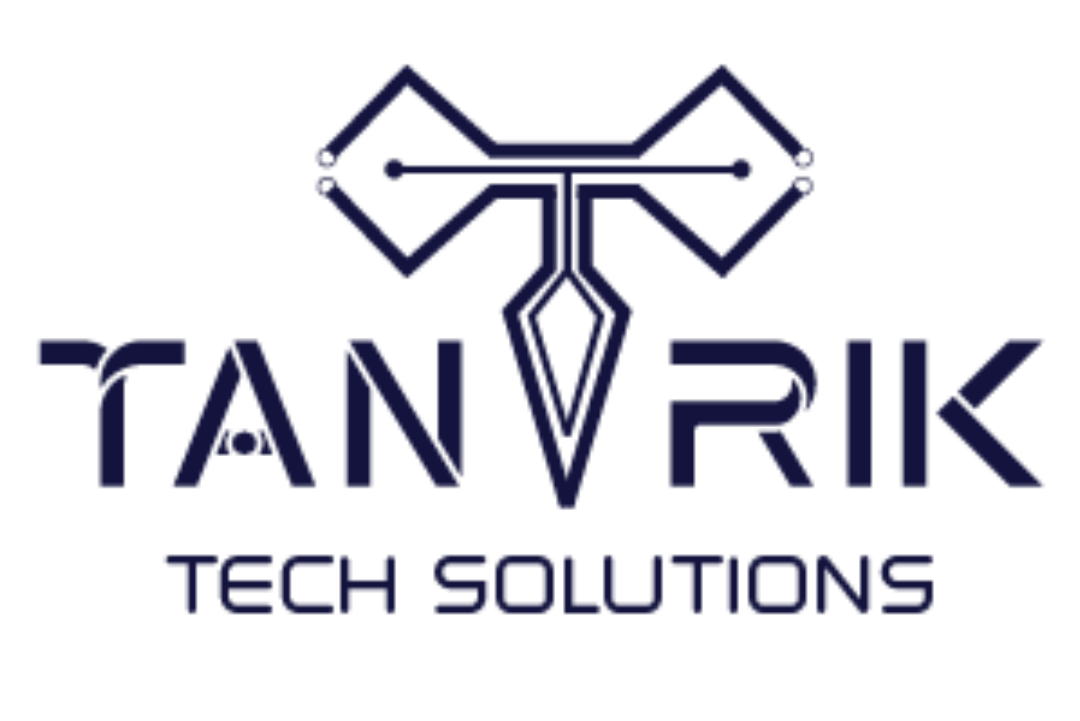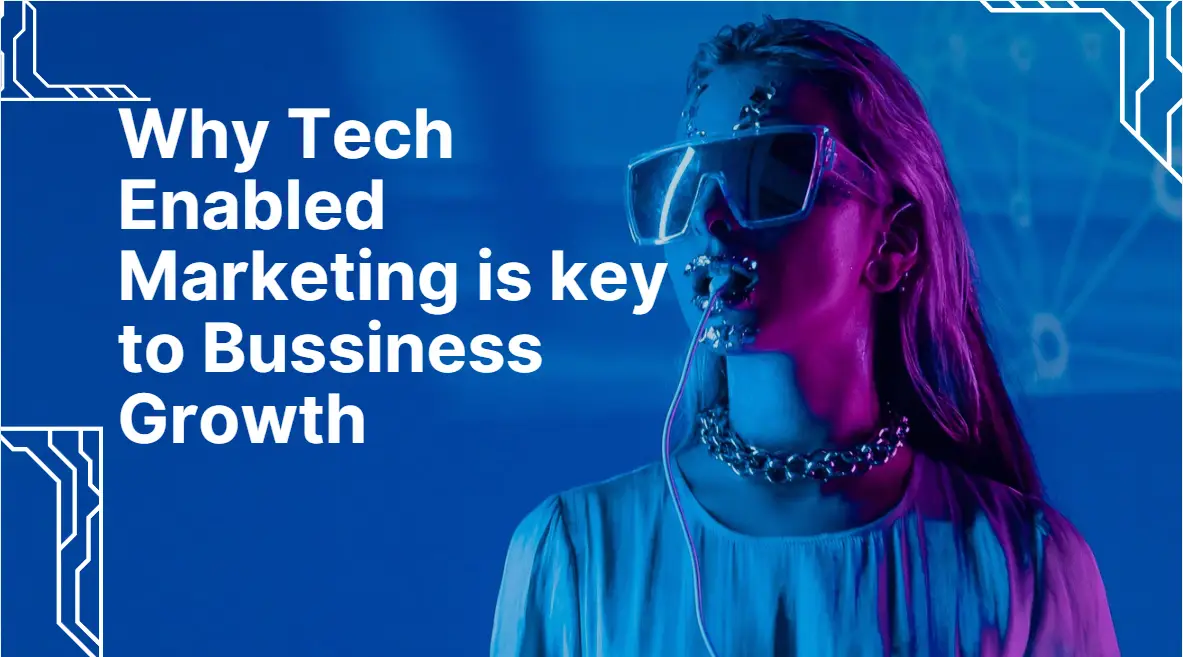Introduction
Marketing has undergone a massive transformation over the years. Traditional marketing approaches, like print advertisements and billboards, are increasingly giving way to digital, tech-enabled methods that reach customers more effectively and efficiently. This shift isn’t just about keeping up with trends; it’s about leveraging technology to drive business growth. In this article, we’ll explore what tech-enabled marketing is, why it’s vital for business expansion, and how companies can harness it to achieve substantial results.
What is Tech-Enabled Marketing?
Definition and Core Components
Tech-enabled marketing refers to the use of technology, data analytics, and digital tools to create, execute, and optimize marketing strategies. It includes everything from artificial intelligence (AI) and automation to customer relationship management (CRM) systems and analytics tools. These technologies empower marketers to gain insights, personalize campaigns, and engage with customers in innovative ways.
Evolution of Marketing with Technology
The evolution of marketing has been closely tied to technological advances. From the early days of email campaigns to today’s AI-driven personalization and predictive analytics, marketing technology (martech) has transformed how businesses connect with their audiences. Social media platforms, mobile marketing, and automation tools are just a few examples of how technology has expanded marketers’ capabilities.
Difference Between Traditional Marketing and Tech-Enabled Marketing
Traditional marketing focuses on broad messaging with limited metrics for measuring success, whereas tech-enabled marketing allows for targeted, data-driven approaches. Traditional methods might use guesswork or general insights, while tech-enabled strategies provide real-time data, advanced segmentation, and automated customer journeys that boost effectiveness and efficiency.
Benefits of Tech-Enabled Marketing for Business Growth
Increased Reach and Customer Engagement
By using technology like social media algorithms, programmatic advertising, and email automation, marketers can reach a wider audience more efficiently. AI algorithms also help deliver tailored messages, increasing customer engagement and conversion rates.
Data-Driven Decision-Making
Data is at the heart of tech-enabled marketing. Analytics tools provide insights into customer behavior, campaign performance, and market trends, enabling businesses to make informed decisions. This data-driven approach leads to more effective marketing strategies, optimized spending, and improved ROI.
Cost Efficiency and Automation
Technology allows for the automation of repetitive tasks such as email marketing, social media scheduling, and customer segmentation. Automating these tasks not only reduces labor costs but also ensures consistency and accuracy, freeing up marketers to focus on creative and strategic tasks.
Key Technologies Driving Modern Marketing
Artificial Intelligence (AI) and Machine Learning (ML)
AI and ML are revolutionizing marketing by enabling predictive analytics, personalized marketing campaigns, and dynamic content generation. AI can analyze user behavior, predict trends, and automate content creation, enhancing marketing efficiency and effectiveness.
Customer Relationship Management (CRM) Systems
CRM systems like Salesforce and HubSpot are integral to tech-enabled marketing, helping businesses manage customer interactions, track leads, and nurture relationships. These tools enable companies to gather valuable data, personalize communications, and build stronger customer loyalty.
Marketing Automation Platforms
Platforms like Marketo, Mailchimp, and ActiveCampaign automate marketing activities, including email campaigns, social media posts, and lead management. Automation ensures timely, consistent, and data-informed marketing efforts that maximize efficiency.
Analytics and Business Intelligence (BI) Tools
Tools like Google Analytics, Tableau, and SEMrush provide actionable insights into campaign performance, customer engagement, and ROI. They help businesses identify trends, optimize strategies, and measure the success of their marketing initiatives.
Personalization Through Tech-Enabled Marketing
Understanding Consumer Behavior and Preferences
Tech-enabled marketing allows businesses to track and analyze customer behavior across various touchpoints, from website visits to social media interactions. These insights help marketers understand what their customers want, enabling more targeted and relevant campaigns.
Tailoring Messages to Specific Audiences
With data insights, businesses can segment their audience based on demographics, interests, and past interactions. This segmentation ensures that marketing messages are personalized, resonating more deeply with each group, which increases engagement and loyalty.
Real-Time Marketing and Dynamic Content
Tech-enabled marketing platforms offer real-time marketing capabilities. For example, e-commerce businesses can show personalized recommendations or flash sales based on a customer’s real-time browsing behavior, enhancing the user experience and driving conversions.
Examples of Tech-Enabled Marketing Strategies
Social Media Marketing Using AI
AI tools analyze social media trends, track engagement, and even automate post scheduling, making it easier for brands to maintain a consistent online presence and respond quickly to their audience.
Email Marketing Automation
Automated email campaigns allow businesses to send personalized messages based on customer behavior, such as abandoned cart reminders or post-purchase follow-ups, enhancing customer retention and loyalty.
Content Marketing with Predictive Analytics
Predictive analytics help marketers understand which types of content will perform best based on past user engagement, allowing them to optimize content creation strategies and enhance audience engagement.
Influencer and Affiliate Marketing with Technology
Platforms like HypeAuditor and PartnerStack streamline influencer and affiliate marketing, providing tools to track performance, measure ROI, and manage partnerships effectively.
How Tech-Enabled Marketing Improves Customer Experience
Creating Seamless Customer Journeys
Tech-enabled marketing integrates various channels and touchpoints, ensuring a consistent customer experience. Whether a customer interacts with a brand via email, social media, or in-store, technology enables businesses to deliver a cohesive message and personalized service.
Enhancing Customer Support with AI-Powered Chatbots
AI chatbots provide instant support, addressing customer inquiries 24/7 and enhancing the overall customer experience. These bots can handle routine queries, freeing up human agents for more complex issues.
Implementing Omnichannel Strategies for Unified Interactions
Omnichannel strategies use technology to provide a unified customer experience across all channels, whether online or offline. For example, integrating a CRM system with a mobile app and physical store data ensures that customers receive personalized offers and consistent service.
Measuring the Impact of Tech-Enabled Marketing on Business Growth
Key Performance Indicators (KPIs) to Track
Measuring the effectiveness of tech-enabled marketing involves tracking KPIs such as:
- Customer Acquisition Cost (CAC)
- Customer Lifetime Value (CLV)
- Engagement Rates (email open rates, social media interactions)
- Conversion Rates
Measuring Return on Investment (ROI)
ROI is a crucial metric for determining the success of marketing campaigns. Tech-enabled platforms allow for precise ROI tracking, enabling businesses to adjust their strategies and maximize profitability.
Tools and Platforms for Marketing Analytics
Platforms like Google Analytics, HubSpot, and SEMrush provide comprehensive dashboards that monitor KPIs and offer insights into campaign effectiveness, helping businesses optimize their marketing efforts for growth.
Challenges in Implementing Tech-Enabled Marketing
Integration of New Technologies with Existing Systems
Integrating new technology into existing marketing infrastructure can be challenging and may require IT support, software updates, or data migration.
Data Privacy and Security Concerns
With the rise of data-driven marketing, businesses must ensure they comply with regulations like GDPR or CCPA to protect customer data and maintain trust.
Skill Gaps and the Need for Training
The rapid advancement of marketing technology often leads to skill gaps within marketing teams. Organizations must invest in training and development to keep their staff up-to-date with the latest tools and techniques.
Overcoming Challenges in Tech-Enabled Marketing
Training Programs and Upskilling
Investing in regular training programs ensures that marketing teams are equipped to use new tools effectively, maximizing the benefits of tech-enabled marketing.
Data Protection and Compliance Strategies
Implementing robust data protection measures and compliance frameworks, such as encryption and secure data storage, ensures businesses protect customer information and maintain regulatory compliance.
Investing in Scalable and Compatible Technologies
Choosing scalable and compatible technology platforms allows businesses to adapt quickly to new trends without disrupting existing systems, providing long-term flexibility and growth potential.
The Future of Tech-Enabled Marketing
Emerging Trends: AI-Powered Personalization and Predictive Marketing
AI is becoming more sophisticated, enabling hyper-personalized marketing and predictive analytics that forecast customer needs and behaviors, helping businesses anticipate and respond to trends.
The Role of Augmented Reality (AR) and Virtual Reality (VR)
AR and VR are increasingly integrated into marketing strategies, enhancing the shopping experience with virtual try-ons or immersive brand experiences that engage customers in new ways.
The Rise of Voice Search Optimization
With the growth of voice-activated devices like Amazon’s Alexa and Google Home, optimizing marketing content for voice search is becoming essential for businesses looking to maintain visibility and relevance.
FAQs
- What is tech-enabled marketing? Tech-enabled marketing uses technology to enhance marketing strategies, enabling data-driven decision-making, automation, and personalization.
- How does technology improve marketing strategies? Technology allows marketers to automate tasks, analyze data in real-time, and personalize messages, leading to more effective campaigns and better ROI.
- What are the key benefits of using tech-enabled marketing? Benefits include increased reach, improved customer engagement, cost efficiency, and the ability to make data-driven decisions.
- Can small businesses afford to implement tech-enabled marketing? Yes, many affordable platforms like Mailchimp and HubSpot offer scalable solutions that fit small businesses’ budgets and needs.
- How can businesses measure the effectiveness of tech-enabled marketing? Using analytics tools and tracking KPIs such as engagement rates, conversion rates, and ROI helps measure effectiveness.
- What are some challenges in adopting technology in marketing? Common challenges include integrating new systems, ensuring data security, and addressing skill gaps within marketing teams.
Conclusion
Tech-enabled marketing is no longer optional—it’s a necessity for businesses aiming for growth in today’s digital age. By leveraging technology, companies can reach wider audiences, engage customers more effectively, and optimize campaigns for better results. As technology continues to advance, staying ahead of the curve will be essential for businesses seeking long-term success and growth.




